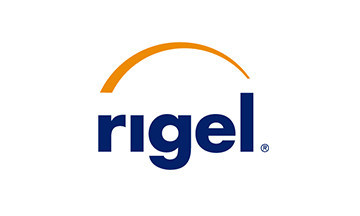Fostamatinib Meets Primary Endpoint in Phase 3 Trial in Japan for Treatment of Chronic Immune Thrombocytopenia
Rigel Pharmaceuticals announced positive topline results from its collaboration with Kissei Pharmaceutical, revealing that fostamatinib significantly outperformed placebo in a Phase 3 clinical trial for chronic immune thrombocytopenia (ITP) in Japan. The trial involved 34 patients, with successful platelet responses defined as ≥50,000 platelets per μL on four of the last six visits. The safety profile was consistent with prior studies. Fostamatinib, sold as TAVALISSE in the U.S., has Orphan Drug Designation in Japan and offers potential new treatment options for approximately 17,000 ITP patients.
- Phase 3 trial in Japan demonstrated significant efficacy of fostamatinib over placebo for ITP treatment.
- Fostamatinib showed a stable platelet response in a majority of patients, supporting its potential use.
- The drug has a consistent safety profile, with no new safety concerns raised during the trial.
- Fostamatinib has Orphan Drug Designation in Japan, highlighting its importance in treating rare diseases.
- None.
Insights
Analyzing...
SOUTH SAN FRANCISCO, Calif., Dec. 21, 2021 /PRNewswire/ -- Rigel Pharmaceuticals, Inc. (Nasdaq: RIGL), today announced that its collaboration partner, Kissei Pharmaceutical Co., Ltd. ("Kissei"), has released positive topline results from its Phase 3 clinical trial in Japan evaluating fostamatinib disodium hexahydrate for the treatment of adult chronic immune thrombocytopenia (ITP).
The Phase 3 clinical study (n=34) showed that patients receiving fostamatinib (R788) achieved a stable platelet response significantly higher than patients receiving a placebo control. A stable platelet response was defined as achieving greater than or equal to 50,000 platelets per μL of blood on at least four of the last six scheduled visits between weeks 14 and 24 of treatment. The safety profile of fostamatinib was consistent with other clinical trials, with no new or unusual safety issues observed.
"We are encouraged by these initial Phase 3 results showing the potential of fostamatinib for treating chronic ITP in Japan," said Mutsuo Kanzawa, Chairman and CEO of Kissei. "There is an estimated 17,0001 people living with ITP in Japan. Kissei strives to provide new treatment options by engaging in R&D in the field of rare diseases, including chronic immune thrombocytopenia."
In October 2018, Rigel entered into an exclusive license and supply agreement with Kissei to develop and commercialize fostamatinib in all current and potential indications in Japan, China, Taiwan and the Republic of Korea. Fostamatinib is commercially available in the United States under the brand name TAVALISSE® for the treatment of adult patients with chronic ITP who have had an insufficient response to a previous treatment.
"These Phase 3 results add to the body of evidence demonstrating fostamatinib may provide a meaningful benefit to people with ITP," said Wolfgang Dummer, M.D., Ph.D., executive vice president and chief medical officer of Rigel. "Fostamatinib has a unique mechanism of action that addresses the underlying autoimmune basis of ITP by impeding platelet destruction. We also continue to evaluate the potential of fostamatinib to treat warm antibody autoimmune hemolytic anemia (wAIHA), another rare blood disorder in which the immune system destroys blood cells."
Raul Rodriguez, president and chief executive officer of Rigel, continued: "We have great confidence in our collaboration partner, Kissei, and look forward to potentially bringing treatment with fostamatinib to patients with ITP in Japan and other Asian countries where there is a need."
Fostamatinib has Orphan Drug Designation in Japan.
About ITP
In patients with ITP, the immune system attacks and destroys the body's own blood platelets, which play an active role in blood clotting and healing. Common symptoms of ITP are excessive bruising and bleeding. People suffering with chronic ITP may live with an increased risk of severe bleeding events that can result in serious medical complications or even death. Current therapies for ITP include steroids, blood platelet production boosters (TPO receptor agonists) and splenectomy. However, not all patients are adequately treated with existing therapies. As a result, there remains a significant medical need for additional treatment options for patients with ITP.
ITP is designated as an "intractable disease" by the Minister of Health, Labour and Welfare in Japan. The number of patients with ITP is estimated to be approximately 17,0001 and 2.16 per 100,0002 people are newly diagnosed with ITP every year in Japan.
About TAVALISSE
Indication
TAVALISSE® (fostamatinib disodium hexahydrate) tablets is indicated for the treatment of thrombocytopenia in adult patients with chronic immune thrombocytopenia (ITP) who have had an insufficient response to a previous treatment.
Important Safety Information
Warnings and Precautions
- Hypertension can occur with TAVALISSE treatment. Patients with pre-existing hypertension may be more susceptible to the hypertensive effects. Monitor blood pressure every 2 weeks until stable, then monthly, and adjust or initiate antihypertensive therapy for blood pressure control maintenance during therapy. If increased blood pressure persists, TAVALISSE interruption, reduction, or discontinuation may be required.
- Elevated liver function tests (LFTs), mainly ALT and AST, can occur with TAVALISSE. Monitor LFTs monthly during treatment. If ALT or AST increase to >3 x upper limit of normal, manage hepatotoxicity using TAVALISSE interruption, reduction, or discontinuation.
- Diarrhea occurred in
31% of patients and severe diarrhea occurred in1% of patients treated with TAVALISSE. Monitor patients for the development of diarrhea and manage using supportive care measures early after the onset of symptoms. If diarrhea becomes severe (≥Grade 3), interrupt, reduce dose or discontinue TAVALISSE.
- Neutropenia occurred in
6% of patients treated with TAVALISSE; febrile neutropenia occurred in1% of patients. Monitor the ANC monthly and for infection during treatment. Manage toxicity with TAVALISSE interruption, reduction, or discontinuation.
- TAVALISSE can cause fetal harm when administered to pregnant women. Advise pregnant women about the potential risk to a fetus. Advise females of reproductive potential to use effective contraception during treatment and for at least 1 month after the last dose. Verify pregnancy status prior to initiating TAVALISSE. It is unknown if TAVALISSE or its metabolite is present in human milk. Because of the potential for serious adverse reactions in a breastfed child, advise a lactating woman not to breastfeed during TAVALISSE treatment and for at least 1 month after the last dose.
Drug Interactions
- Concomitant use of TAVALISSE with strong CYP3A4 inhibitors increases exposure to the major active metabolite of TAVALISSE (R406), which may increase the risk of adverse reactions. Monitor for toxicities that may require a reduction in TAVALISSE dose.
- It is not recommended to use TAVALISSE with strong CYP3A4 inducers, as concomitant use reduces exposure to R406.
- Concomitant use of TAVALISSE may increase concentrations of some CYP3A4 substrate drugs and may require a dose reduction of the CYP3A4 substrate drug.
- Concomitant use of TAVALISSE may increase concentrations of BCRP substrate drugs (eg, rosuvastatin) and P-Glycoprotein (P-gp) substrate drugs (eg, digoxin), which may require a dose reduction of the BCRP and P-gp substrate drug.
Adverse Reactions
- Serious adverse drug reactions in the ITP double-blind studies were febrile neutropenia, diarrhea, pneumonia, and hypertensive crisis, which occurred in
1% of TAVALISSE patients. In addition, severe adverse reactions occurred including dyspnea and hypertension (both2% ), neutropenia, arthralgia, chest pain, diarrhea, dizziness, nephrolithiasis, pain in extremity, toothache, syncope, and hypoxia (all1% ).
- Common adverse reactions (≥
5% and more common than placebo) from FIT-1 and FIT-2 included: diarrhea, hypertension, nausea, dizziness, ALT and AST increased, respiratory infection, rash, abdominal pain, fatigue, chest pain, and neutropenia.
Please see www.TAVALISSE.com for full Prescribing Information.
To report side effects of prescription drugs to the FDA, visit www.fda.gov/medwatch or call 1-800-FDA-1088 (800-332-1088).
TAVALISSE and TAVLESSE are registered trademarks of Rigel Pharmaceuticals, Inc.
About Rigel
Rigel Pharmaceuticals, Inc., is a biotechnology company dedicated to developing, and commercializing novel small molecule drugs that significantly improve the lives of patients with hematologic disorders, cancer, and rare immune diseases. Rigel's pioneering research focuses on signaling pathways that are critical to disease mechanisms. The company's first FDA-approved product is TAVALISSE® (fostamatinib disodium hexahydrate) tablets, the only oral spleen tyrosine kinase (SYK) inhibitor for the treatment of adult patients with chronic immune thrombocytopenia who have had an insufficient response to a previous treatment. The product is also commercially available in Europe (TAVLESSE), the United Kingdom, and Canada (TAVALISSE) for the treatment of chronic immune thrombocytopenia in adult patients.
Fostamatinib is currently being studied in a Phase 3 clinical trial (NCT03764618) for the treatment of warm autoimmune hemolytic anemia (wAIHA)3; a Phase 3 clinical trial (NCT04629703) for the treatment of hospitalized high-risk patients with mild-to-moderate COVID-193; an NIH/NHLBI-funded Phase 3 ACTIV-4 Host Tissue Study (NCT04924660) for the treatment of COVID-19 in hospitalized patients on oxygen therapy, and a Phase 2 clinical trial (NCT04581954) for the treatment of COVID-19 being conducted by Imperial College London.
Rigel's other clinical programs include its interleukin receptor-associated kinase (IRAK) inhibitor program, and a receptor-interacting serine/threonine-protein kinase (RIP1) inhibitor program in clinical development with partner Eli Lilly and Company. In addition, Rigel has product candidates in development with partners AstraZeneca, BerGenBio ASA, and Daiichi Sankyo.
For further information, visit www.rigel.com or follow us on Twitter or LinkedIn.
- Estimated by Kissei based on the number of patients in Japan having certificates issued for specific disease treatment (designated intractable disease)
- Int J Hematol, 2011, 93: 329-35
- The product for this use or indication is investigational and has not been proven safe or effective by any regulatory authority.
Forward Looking Statements
This press release contains forward-looking statements relating to, among other things, that fostamatinib may provide a meaningful benefit to people with ITP. Forward-looking statements can be identified by words such as "plan", "potential", "may", "expects", "will" and similar expressions in reference to future periods. Forward-looking statements are neither historical facts nor assurances of future performance. Instead, they are based on Rigel's current beliefs, expectations, and assumptions regarding the future of our business, future plans and strategies, projections, anticipated events and trends, the economy and other future conditions, and hence they inherently involve significant risks, uncertainties and changes in circumstances that are difficult to predict and many of which are outside of our control. Therefore, you should not rely on any of these forward-looking statements. Actual results and the timing of events could differ materially from those anticipated in such forward looking statements as a result of these risks and uncertainties, which include, without limitation, risks that the PMDA or other regulatory authorities may make adverse decisions regarding fostamatinib; risks that fostamatinib clinical trials may not be predictive of real-world results or of results in subsequent clinical trials; risks that fostamatinib may have unintended side effects, adverse reactions or incidents of misuses; as well as other risks detailed from time to time in Rigel's reports filed with the Securities and Exchange Commission, including its Quarterly Report on Form 10-Q for the quarter ended September 30, 2021. Any forward-looking statement made by us in this press release is based only on information currently available to us and speaks only as of the date on which it is made. Rigel does not undertake any obligation to update forward-looking statements, whether written or oral, that may be made from time to time, whether as a result of new information, future developments or otherwise, and expressly disclaims any obligation or undertaking to release publicly any updates or revisions to any forward-looking statements contained herein.
Contacts:
For Investors
Jodi Sievers – Rigel Pharmaceuticals
Phone: 650.624.1232
Email: ir@rigel.com
For Media
Emily Correia – Syneos Health
Phone: 508.314.3157
Email: emily.correia@syneoshealth.com
![]() View original content to download multimedia:https://www.prnewswire.com/news-releases/fostamatinib-meets-primary-endpoint-in-phase-3-trial-in-japan-for-treatment-of-chronic-immune-thrombocytopenia-301448726.html
View original content to download multimedia:https://www.prnewswire.com/news-releases/fostamatinib-meets-primary-endpoint-in-phase-3-trial-in-japan-for-treatment-of-chronic-immune-thrombocytopenia-301448726.html
SOURCE Rigel Pharmaceuticals, Inc.







